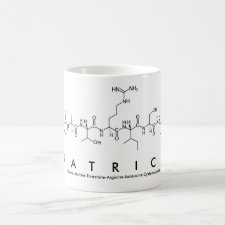
Authors: Wackers G, Vandenry T, Cornelis P, Kellens E, Theolen R, De Ceuninck W, Losada-Pérez P, Van Grinsven B, Peeters M, Wagner P
Article Title: Array Formatting of the Heat-Transfer Method (HTM) for the Detection of Small Organic Molecules by Molecularly Imprinted Polymers.
Publication date: 2014
Journal: Sensors
Volume: 14
Issue: (6)
Page numbers: 11016-11030.
DOI: 10.3390/s140611016
Alternative URL: http://www.mdpi.com/1424-8220/14/6/11016
Abstract: In this work we present the first steps towards a molecularly imprinted polymer (MIP)-based biomimetic sensor array for the detection of small organic molecules via the heat-transfer method (HTM). HTM relies on the change in thermal resistance upon binding of the target molecule to the MIP-type receptor. A flow-through sensor cell was developed, which is segmented into four quadrants with a volume of 2.5 μL each, allowing four measurements to be done simultaneously on a single substrate. Verification measurements were conducted, in which all quadrants received a uniform treatment and all four channels exhibited a similar response. Subsequently, measurements were performed in quadrants, which were functionalized with different MIP particles. Each of these quadrants was exposed to the same buffer solution, spiked with different molecules, according to the MIP under analysis. With the flow cell design we could discriminate between similar small organic molecules and observed no significant cross-selectivity. Therefore, the MIP array sensor platform with HTM as a readout technique, has the potential to become a low-cost analysis tool for bioanalytical applications.
Template and target information: serotonin, histamine, nicotine
Author keywords: heat-transfer method (HTM), molecularly imprinted polymers (MIPs), Serotonin, histamine, L-nicotine, array format



Join the Society for Molecular Imprinting

New items RSS feed
Sign-up for e-mail updates:
Choose between receiving an occasional newsletter or more frequent e-mail alerts.
Click here to go to the sign-up page.
Is your name elemental or peptidic? Enter your name and find out by clicking either of the buttons below!
Other products you may like:
 MIPdatabase
MIPdatabase









